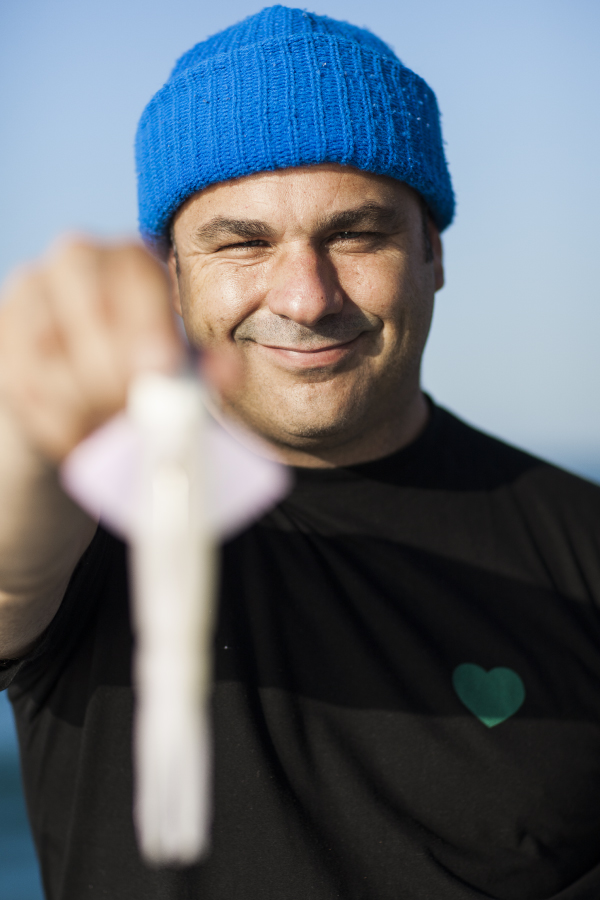
Back in 2008, Spanish Chef Ángel León wowed the culinary scene by serving the world’s first phytoplankton menu, and later, in 2017, its first bio-luminescent cocktail – a glow-in-the-dark concoction made with sea algae that naturally light up in fluorescent blue. It’s the kind of headline-grabbing idea one would expect from a Michelin-starred Chef like León.
But while he loves a sparkle, he isn’t in it for the stars, he says. Instead, his decades-long efforts to get people to consume seafoods they’ve never tried before comes from a desire to show the untapped potential in our oceans when it comes to feeding the planet.
“It is crazy to think that we will have to eat crickets or that we should go to the moon to grow lettuce,” he says. “I believe the true future of humanity lies in looking towards the sea.”
From sea cucumbers to ocean honey, León is convinced that most foods – or at least tastes – that exist on land also exist in the ocean. And he’s on a mission to find them all.
“There are millions of species still to be discovered in the sea,” he stresses. The problem, to him, is not a lack of food on earth, “but [that] we want to pick and choose from the sea instead of taking advantage of what it offers us.”
One way to change that is putting new and unusual things on the menu in places where people take notice. Case in point: when his team at Aponiente –his three-Michelin-star restaurant in El Puerto de Santa María (Cádiz)– began using marine phytoplankton as an ingredient some 15 years ago, “the word sounded like 2050,” he recalls. “Today it is consumed in 25 countries.”
He hopes a similar transition will happen with ocean farming, a concept he started a few years ago, harvesting grain from marine eelgrass. It’s more nutritious than rice, doesn’t require freshwater, and it creates a beautiful ecosystem, he says. Research into possibilities like this is what makes Aponiente more than a fancy restaurant – it’s an idea factory and laboratory.
“I would strip all the stars [for the ability to] feed humanity in the future,” he says. “It would be much more momentous.”
While he waits for the world to embrace ocean farming, he hopes that his work in the meantime reawakens people’s curiosity for the ocean and a desire to use it more sustainably.
“I believe that true sustainability has to do with loving nature and being in love with the place where we live. In my case, I fell in love with the sea.”